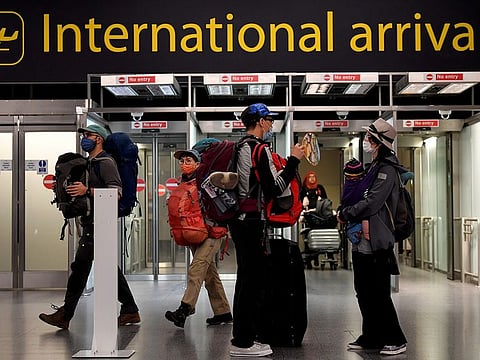Travellers will mix and match next set of moves
Those decisions will be directly influenced by their response to COVID-19 concerns

Travellers and the travel ecosystem have both been waiting with bated breath for close to six months now, itching to scratch that dormant travel bug. Now that the finish line might be in sight, experts are anticipating several ways in which this new travel experience, in a post-COVID-19 world, will be different from anything we knew before.
The travel and tourism sector in the Gulf last year accounted for $245 billion of its overall GDP, equating to 8.6 per cent, according to a report from the World Travel & Tourism Council (WTTC). In March, it forecast that international travel could fall by up to 25 per cent this year.
But some regions – particularly the Middle East – are forecast to recover more rapidly. It is now crucial governments throughout the Middle East help to protect the industry as the backbone of the regional and global economy. Similar to all the other sectors coping with the pandemic, the travel industry, too, has started adapting to new circumstances, while ensuring that the travel spark stays alive.
With this nascent evolution in mind, here are a few trends we anticipate will flourish in the new - and improved - Travel 2.0.
Sustainable tourism
Time away from travel, and its subsequent effects on the environment, has given both avid and aspirational travellers reason to rethink the kind of traveller they want to be. Choosing low emission or carbon-offset modes of transportation, staying, shopping and eating at locally-owned businesses, opting for second-city travel, and avoiding use of plastic as much as possible are all choices that travellers are increasingly taking into consideration.
Governments and travel companies will have to make sure they abide by and create new policies and measures that improve the social, economic and environmental health of the travel industry.
Demand for exclusivity
Impromptu budget trips that involve cheap flights, shared or community accommodations, group tours and public transport have been the hallmarks of millennial travel for a long time. Instead, we will now see a rise in solo trips, exclusive accommodations at places that are transparent about their hygiene practices, and self-driven transport - anything that helps people avoid crowds. Safety over convenience will be the new travel mantra.
Second-city holidays
Initially conceptualized as a way to avoid over-tourism and resource depletion at popular destinations, second-cities - i.e., lesser-known yet scenic destinations - will gain prominence for the solitude they offer. In the same vein, solo or isolated holidays will feature high on travel wish lists. Private villas, remote cabins, camping and the like - places that take one away from crowds will likely be preferred.
Personalized digital solutions
These allow consumers to plan their travel with increased flexibility - and digital solutions that lets them do so remotely will be immensely popular. An added layer will be the need to plan their travel remotely, with as few human touchpoints as possible. These newly formed user behaviours will translate to a spike in demand for flexible travel planning, digital documents, e-visa services, mobile biometrics enrolment and COVID-19 PCR tests conducted in the comfort of your own home.
Zero-contact vacations
We have already started seeing the effects of COVID-19 on both domestic and international transport - and these are here to stay. Airports have revamped to reduce touch interfaces through self-check-in kiosks, contactless identification at security, contactless sanitization of luggage and more.
Even with the multitudes of new restrictions as potential barriers, people are looking forward to getting back to travel. This desire should inspire the travel industry to up its game to meet new demanding consumer expectations.
It will be interesting to see how the first wave of post-pandemic travellers make their way, and how the ecosystem adapts to the new challenges facing them.

- Peter Brun is Chief Communications Officer, VFS Global.









